How A Trip To Thailand Inspired One Traveler To Start A Nonprofit
In 2013, traveler Erin Zaikis was working with an organization that helped children who were trafficked or at risk of being trafficked, in a small Northern Thailand village on the border with Myanmar. While her placement experience moved her, there was one life-changing moment that truly inspired her: going to the bathroom; or rather, using the facilities only to realize there was no soap. Not only that, but that the local children had never seen soap, and had no idea what it was.
It was from this experience that Zaikis’ nonprofit, Sundara, a localized soap recycling initiative, was born.
I caught up with Zaikis to learn more about what it takes to start a nonprofit, how travelers can positively impact the communities they visit and what inspired her to travel in the first place.








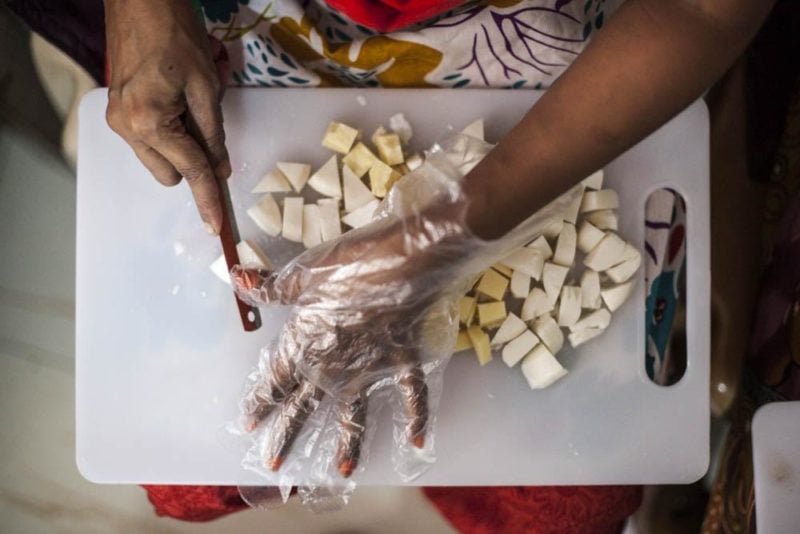
1. What inspired you to want to travel, and how did you work up the courage to leave home to work in Thailand?
I was working in commercial real estate in NYC and bored with the monotony of that job. I felt like the work I did didn’t matter. I was sitting in my desk, reading Buzzfeed and craving adventure — this wasn’t the way I envisioned my life would be after I graduated. So I did something pretty drastic: I quit my job and also took a position with a NGO that prevents child trafficking. It was pretty awesome, being paid and having my travel costs covered while I was in Thailand.
2. You had an encounter in Thailand that had a huge impact on you. What was that? How did you turn that experience into a positive one?
I was working in a small village in Thailand on the border with Myanmar. I went to visit a school and went to the bathroom – and tried to wash my hands at the sink but could not find the soap. I asked a group of middle school aged students nearby if they had any soap and they shrugged and said “What’s soap?” I didn’t believe them. It blew my mind that these students had sinks and running water – but no soap. So I drove to the neighboring town, bought out their supply of soap and brought it back with me. I watched as they opened the packages of soap and clawed at the bars, some smacking it against their heads, having absolutely no idea what to do with it. I realized so many organizations focus on clean water but no one was providing soap and hygiene education to these communities. Upon my return to the United States I quit my job and decided I had to do something about this. I founded Sundara, a nonprofit that creates sustainable soap recycling initiatives in India, Uganda and Myanmar.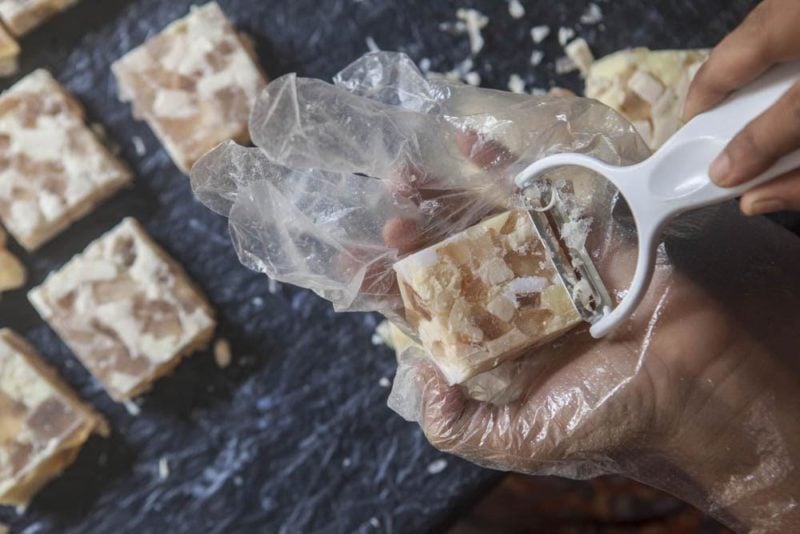
3. For those looking to make a positive impact on the places they visit, what advice would you give?
In the area I worked in Thailand, many of the mothers had lost a child before the age of five because of a preventable disease, usually diarrhea and pneumonia. I thought, why don’t children die of this in the US? And it lead me to researching about hygiene and the importance of clean water, soap and hygienic habits. My advice would be to look around you and talk to people to get to know them and the problems they face. Get out of your comfort zone — ask your tour guide to dinner, talk to the man behind the counter of the coffee shop. I find that people welcome the opportunity to speak to travelers. By talking to people and hearing their stories, you might find something that moves you and makes you want to help.
4. For those looking to volunteer or work abroad to help the local population, what tips would you give for choosing a responsible placement where they can make the greatest impact?
I’d recommend looking up some local NGOs and seeing if you can intern or volunteer with them. Sometimes local nonprofits can’t take foreign volunteers for a short amount of time so ask if you can drop by for a tour and donate some supplies they are in need of. That’s a great way to get in the door and learn about an issue in the field. So many people go abroad to teach English, but think of all your skill sets you have to offer. Are you a yoga teacher? Can you create a fantastic website? Run someone’s social media? Provide legal help or be a fundraiser? Make a list of your strengths and highlight them when talking to a local nonprofit. I’m sure that many are getting approached by potential volunteers, but as someone who now runs one, I’m a lot more open to taking on someone once I know their skill set and match it up with our current needs.
5. For those looking to start their own nonprofit/charitable organization, what advice would you give?
Do your research – are there other organizations that are tackling this issue already? Is your idea for solving it any different from existing approaches? There are 1.5 million nonprofits in the US alone – so make sure your idea is new or the perspective is fresh. People will always ask “Why should I support to you?” Practice responding to your friends. Make sure you have a convincing answer. Once you have a clear concept and persuasive reason, start small. Do one thing each week towards your idea – whether it’s interviewing an industry expert, setting up a bank account, working on your website or applying for a grant.
6. What makes soap such an essential item for communities to have access to?
Soap is the single most effective way to prevent childhood death – both more effective and cheaper than vaccines, medications or clean water initiatives alone. The CDC ran a series of studies in Pakistan recently, which showed that in one year, with hand washing instruction and a year’s supply of soap, it is possible to reduce the rate of these childhood illnesses by 50%. That’s 1.75 million children that can be saved by something as simple as a bar of soap. It’s a low cost, low technology way to save lives and empower children to take their health into their own hands. We launched our soap recycling initiative as a way to provide communities in need with a sustainable source of soap. We work with nearly two dozen hotels in these countries to collect their bar soap. We have hired women from a nearby slum at a fair wage and trained them to process and sanitize the soap so it is fit for use again. The soap is then distributed two ways: as an incentive for good school attendance in urban slums, and as a handout to rural villages outside the city that face a soap deficit. We also train teachers and community leaders on hygiene modules so they can teach children and care takers about hand washing and other methods of preventative health care. This is critical so the good hygiene habits will stick and we will be able to make more of an impact in these communities over time.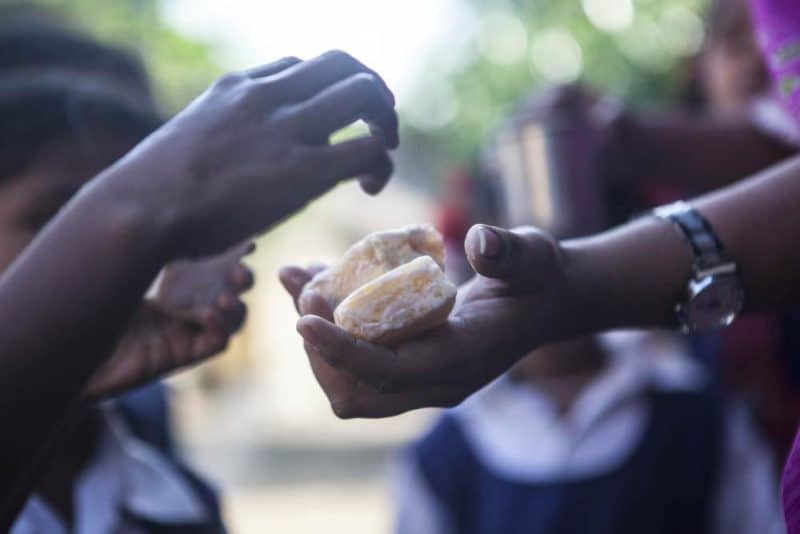
7. What have been some of the most important lessons you’ve learned, both from traveling and starting Sundara?
First of all, rejection is inevitable. It’s tough dealing with rejection all the time — and I’m super sensitive — but if you’re not getting rejected, it actually means you’re not trying your hardest to make something happen. Plus rejection isn’t failure, it’s just an incentive to pivot and try something new. You might have an idea of what you want your organization to look like now, but trust me but it will go through many variations and refinements over the years. I’ve also learned that sometimes you just need to ask for help. Especially as women, we might be more reserved or think we have to do it all ourselves. Then I finally realized, you’re not going to get anything unless you ask for it. What’s the worst that can happen? Someone says no to you? Okay so they said no – and trust me, you’ll live. Plus, I’ve realized that when you ask in the right way a lot of people will be flattered that you would want their assistance and advice and will be glad to help. And from traveling? I’ve learned that attitude is everything. I’ve met people who have so much less than me but who are 10x happier. So I’ve realized something: I can have a really crappy day and be depressed about it, or be grateful that I have my health and my freedom and people who love and support me. You can look at something as a huge failure – or as an opportunity to try something else. Can we all agree to not be so hard on ourselves and love ourselves (and each other) a little more?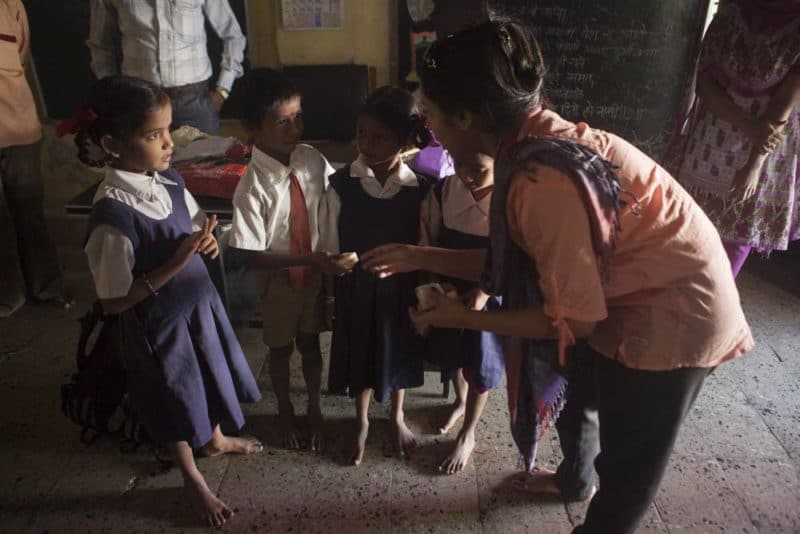
8. What have been the biggest challenges of visiting communities in need, and how have you overcome them?
The biggest challenge for me has been overcoming guilt and finding some balance between working abroad and maintaining a healthy and somewhat normal life here in the US. I still struggle with it: I would live on $100 a week in India and then come back to New York and go to a birthday dinner with friends and kick myself for spending money and having fun, when “for goodness sakes there are starving kids in India?” Am I right? Now I’m trying to realize that life isn’t supposed to be 100% fun nor 100% depressing — it’s a mix of so many emotions. And I’ve realized you must take care of yourself mentally and physically before you take care of others. I think it’s our natural instinct when visiting a less developed country to feel guilty for living the lives we do at home. And guilt is a tricky emotion – it can be so paralyzing. Rather than feeling guilty though, let’s use that as motivation. If you’re lucky enough to be healthy and education, why not take some of your time to do something for those who aren’t?To get in touch with Erin, Tweet to @erinzaikis or send me an email at [email protected]. And don’t forget to visit the Sundara website for more information.
Also Check Out:
Why Traveling The World Is Important To Me [Blog Inspiration] Starting & Building a Nonprofit: A Practical Guide by Peri Pakroo [Essential Smarts]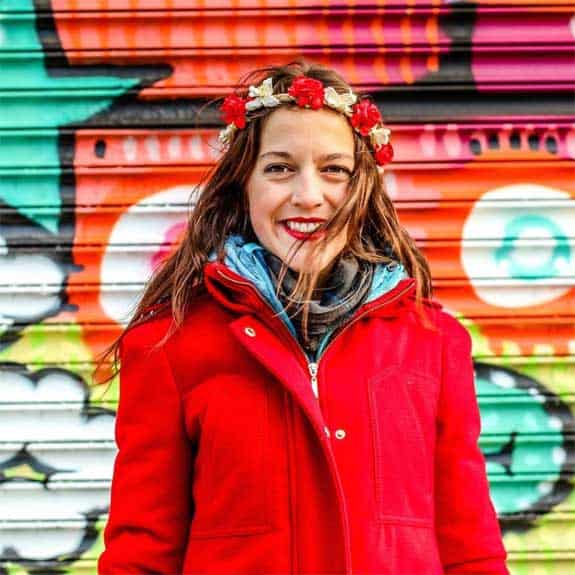
Hi, I’m Jessie on a journey!
I'm a conscious solo traveler on a mission to take you beyond the guidebook to inspire you to live your best life through travel. Come join me!
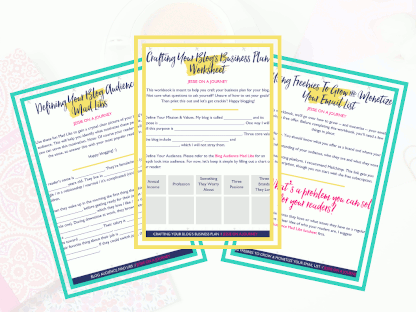
Want to live your best life through travel?
Subscribe for FREE access to my library of fun blogging worksheets and learn how to get paid to travel more!

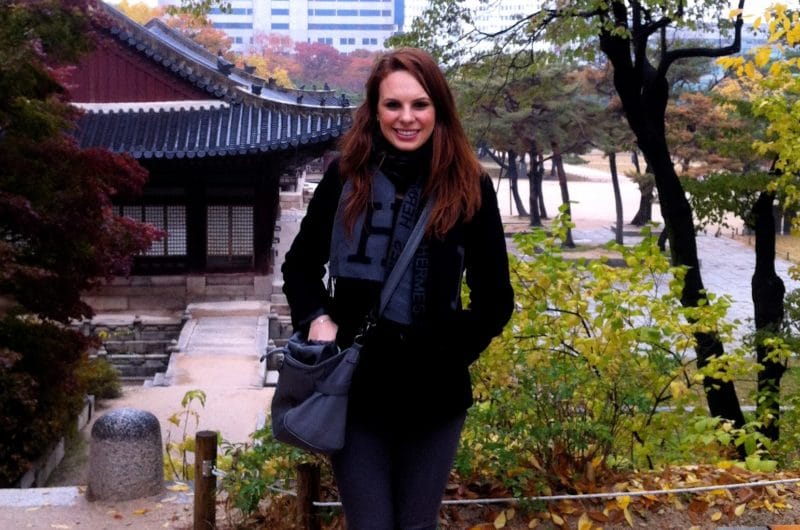

Very inspirational advise and information. Here Erin reveals genuinely helpful connections between inner psychological life and outer life activities. When we are helped we can help bringing forth the so much need care givers. In the helping professions many difficulties arise that require one to tap into ones innate inner resourcefulness.
Thanks for helping to kindle an inspirational fire.
Eric